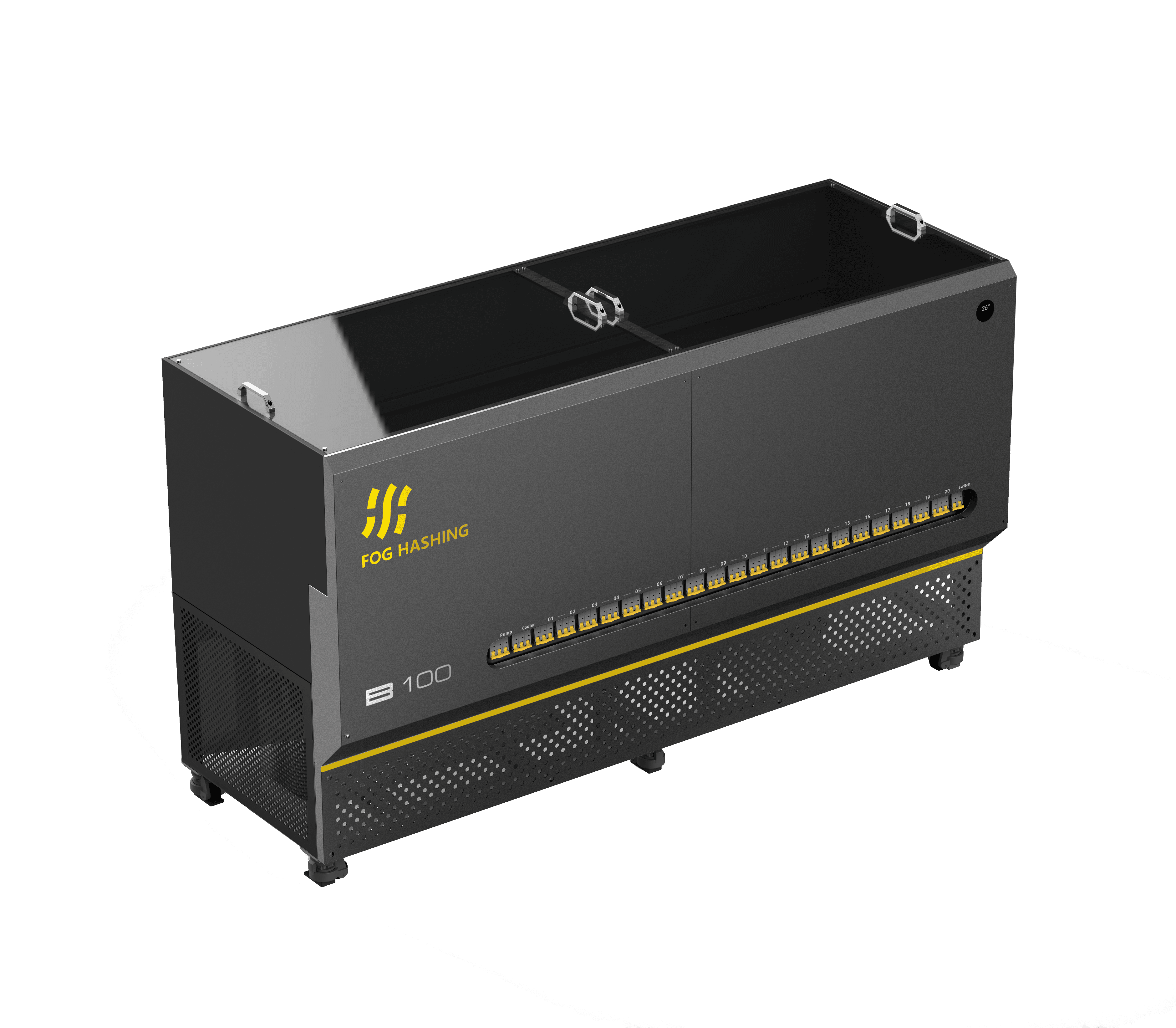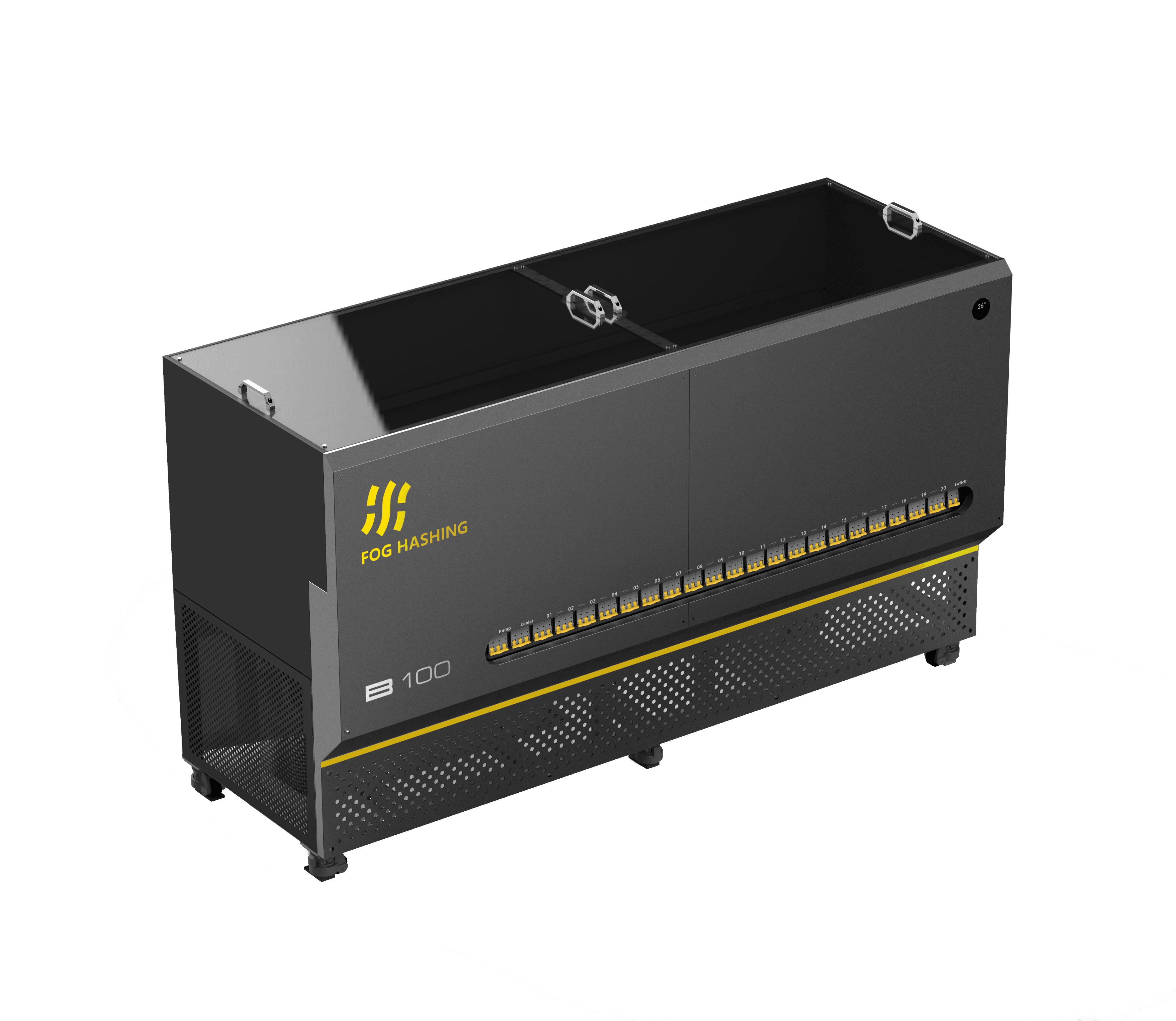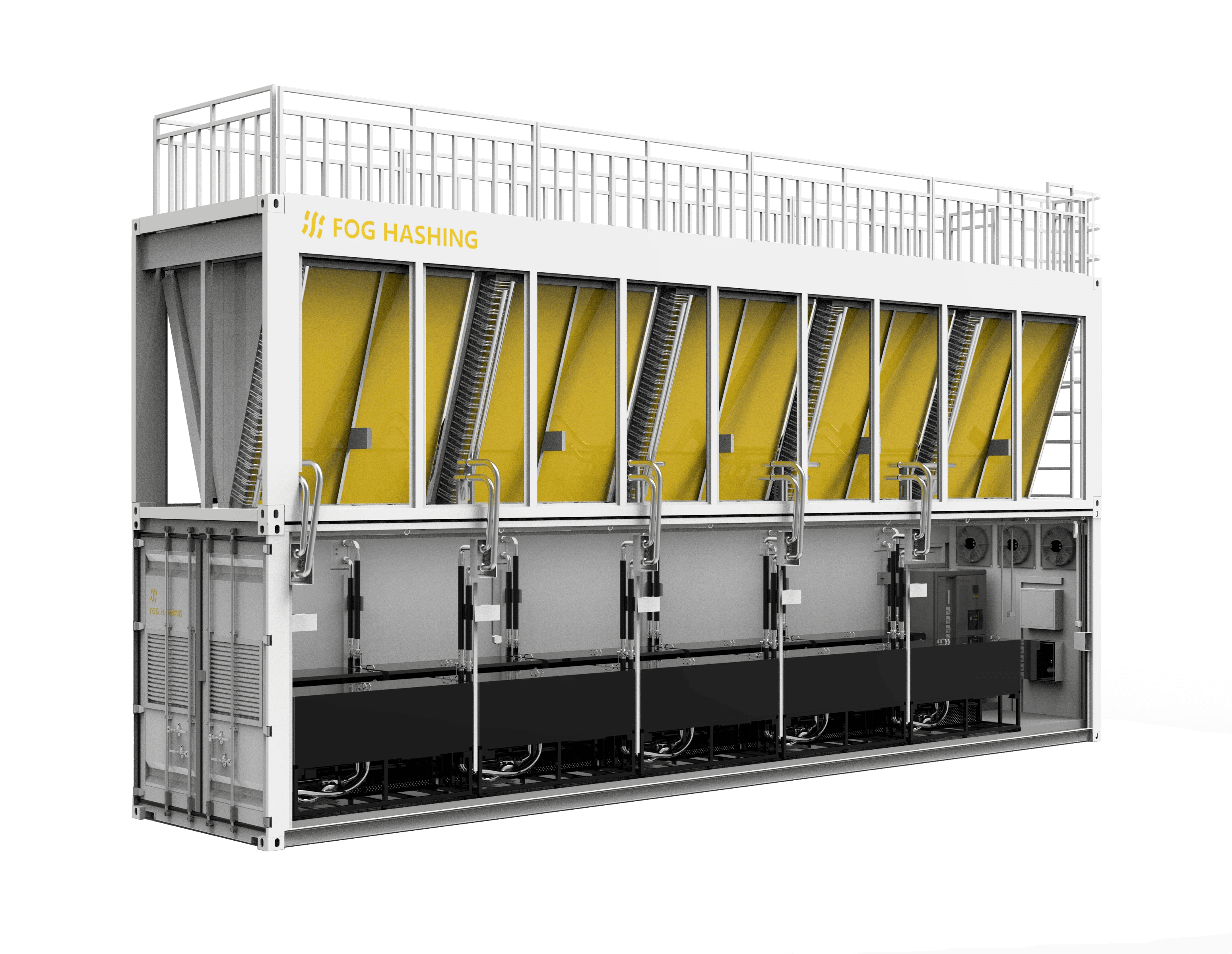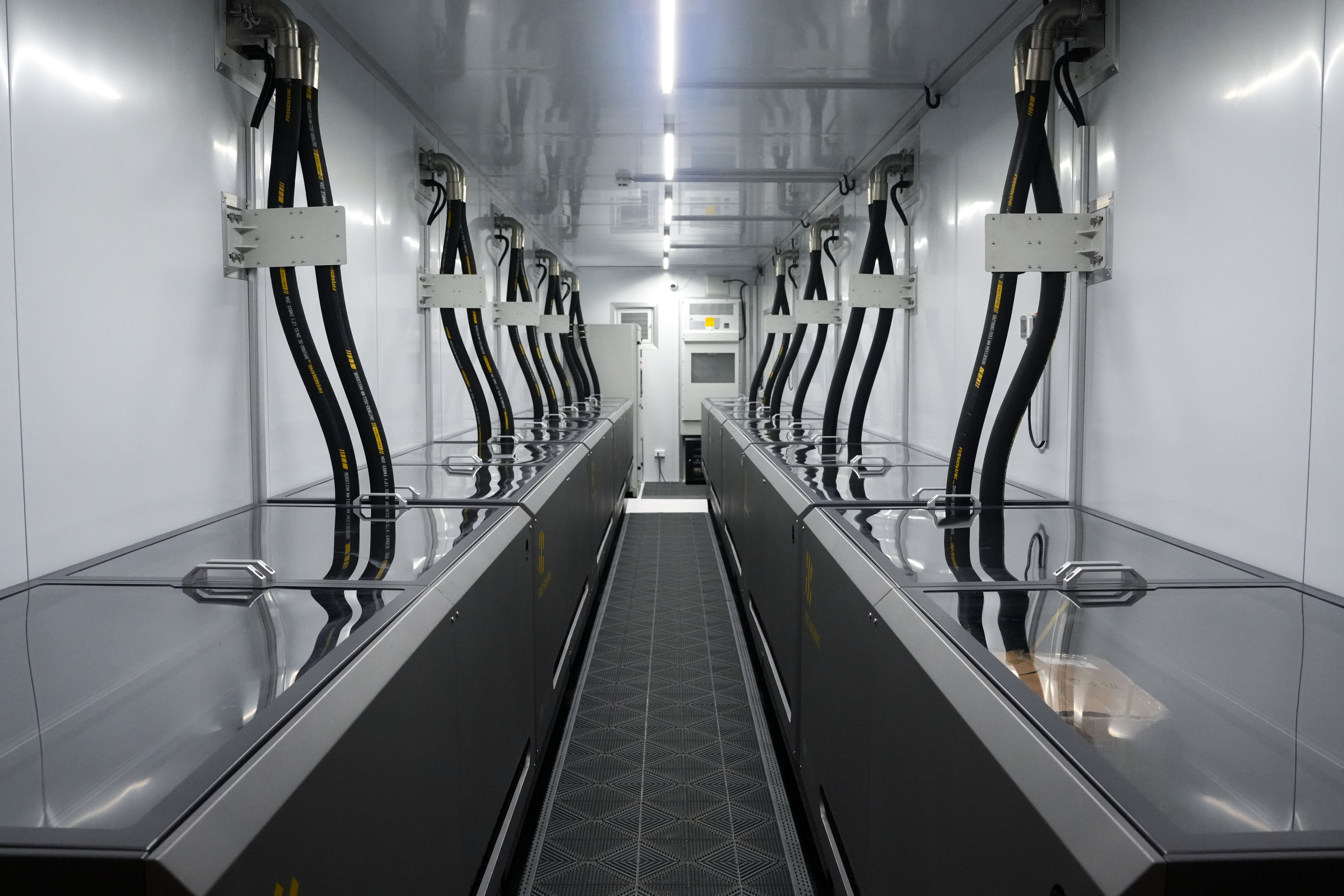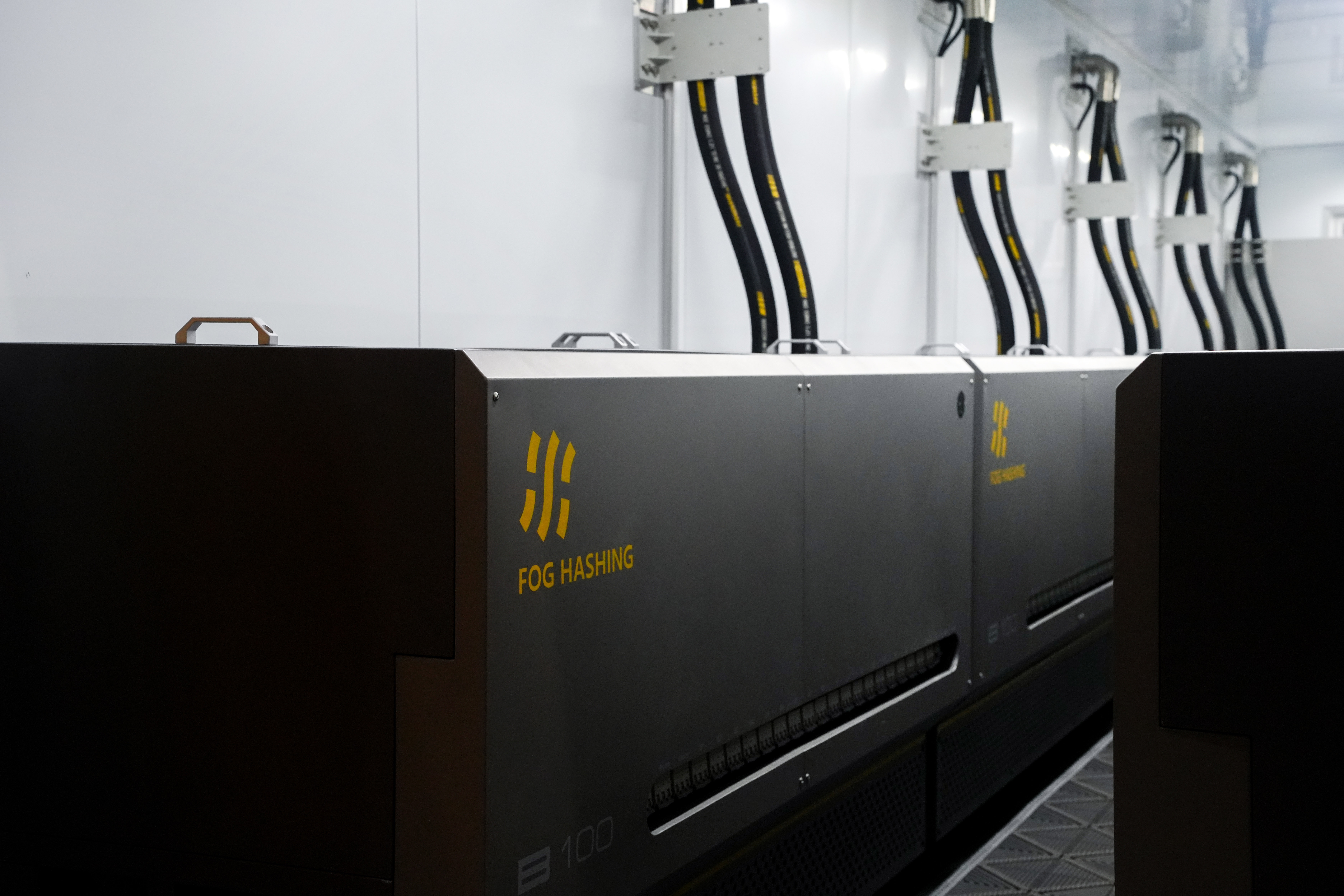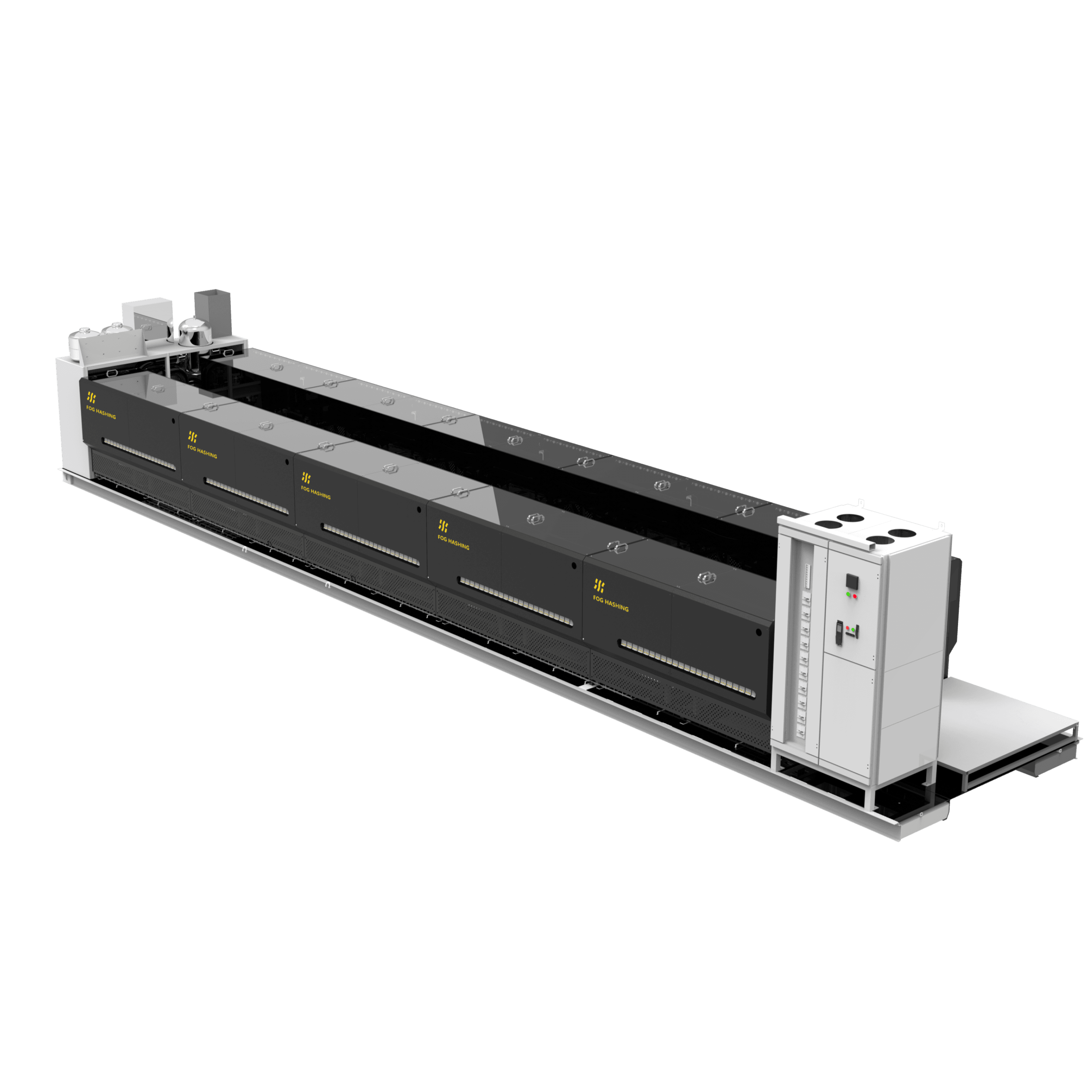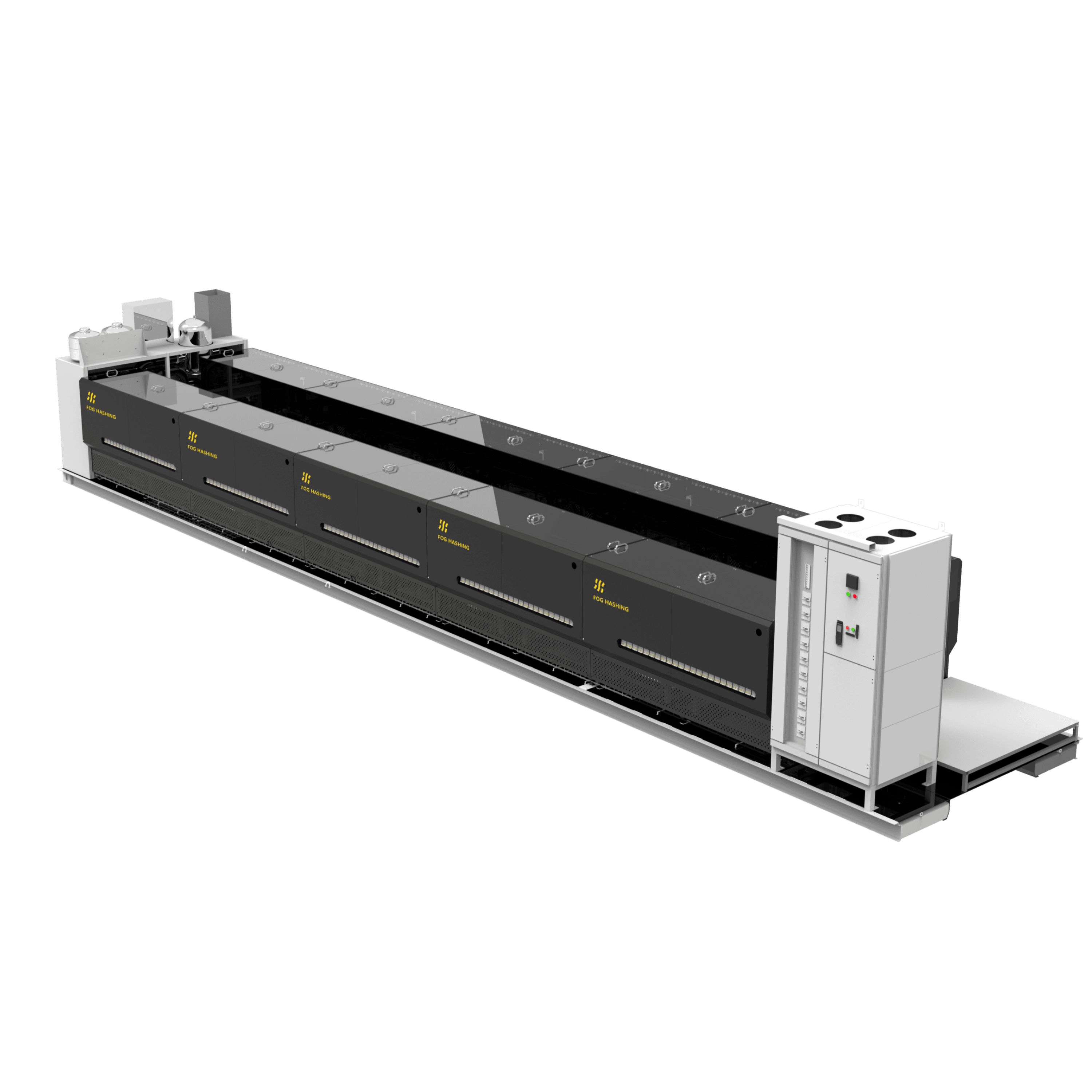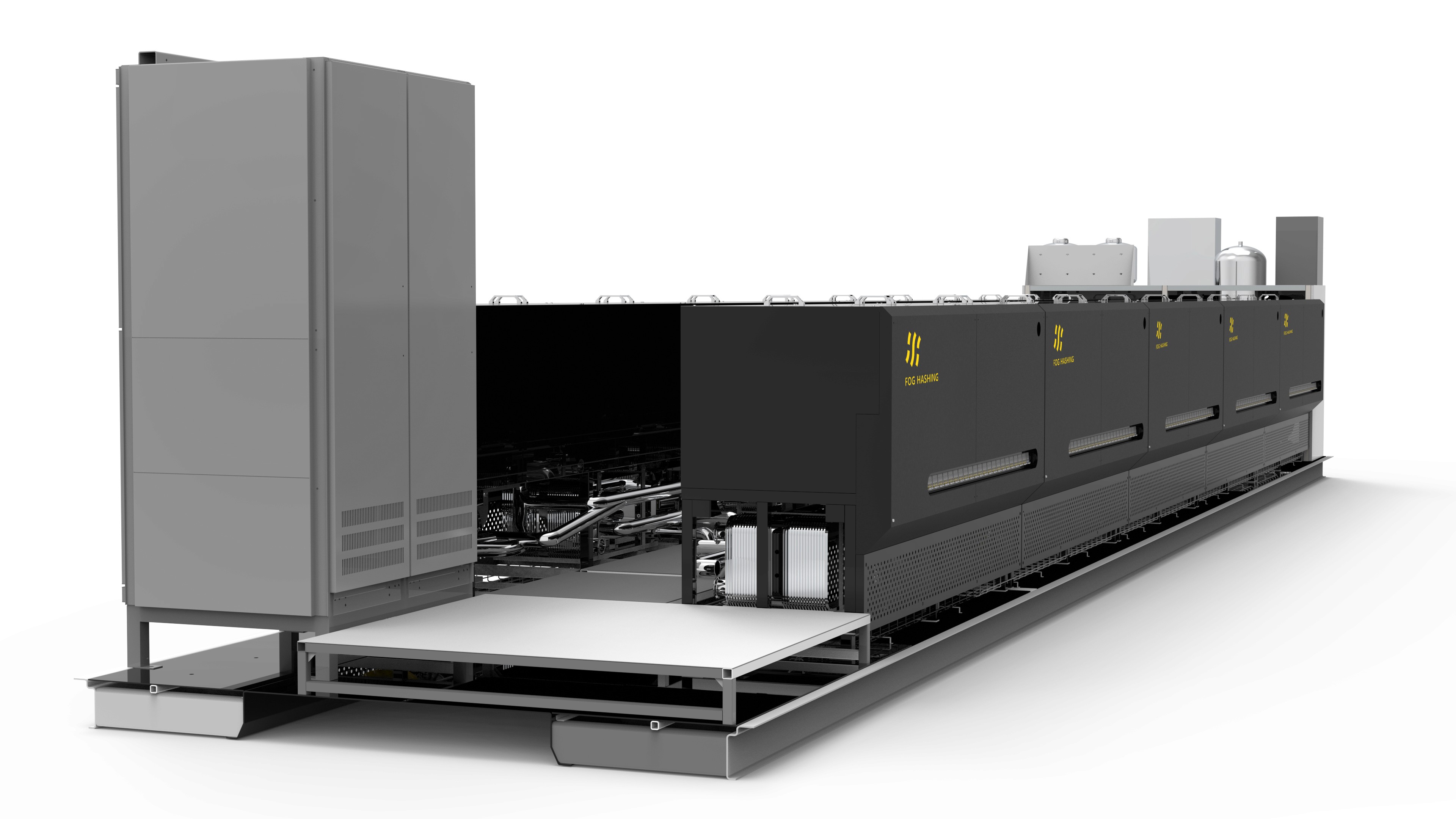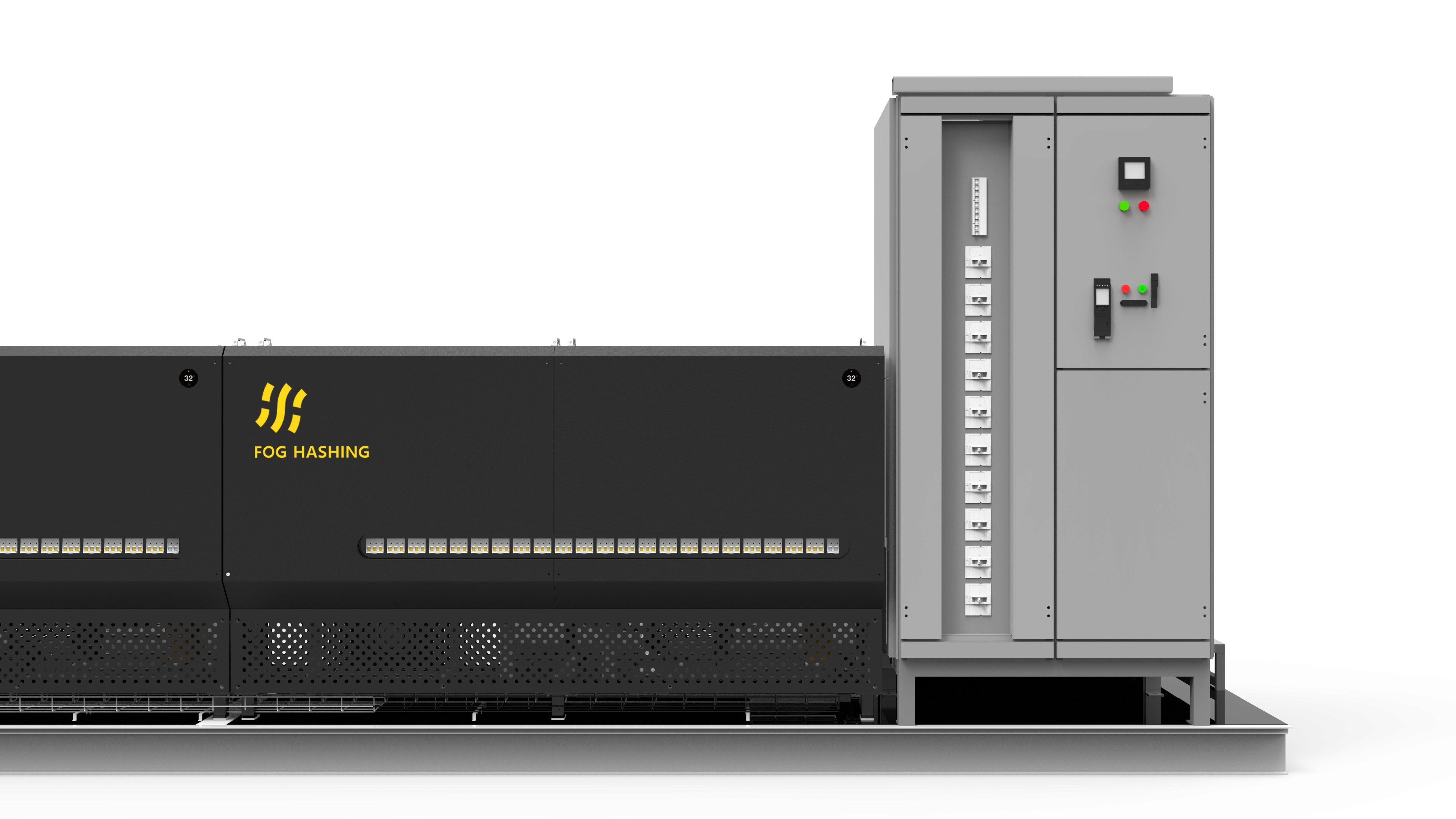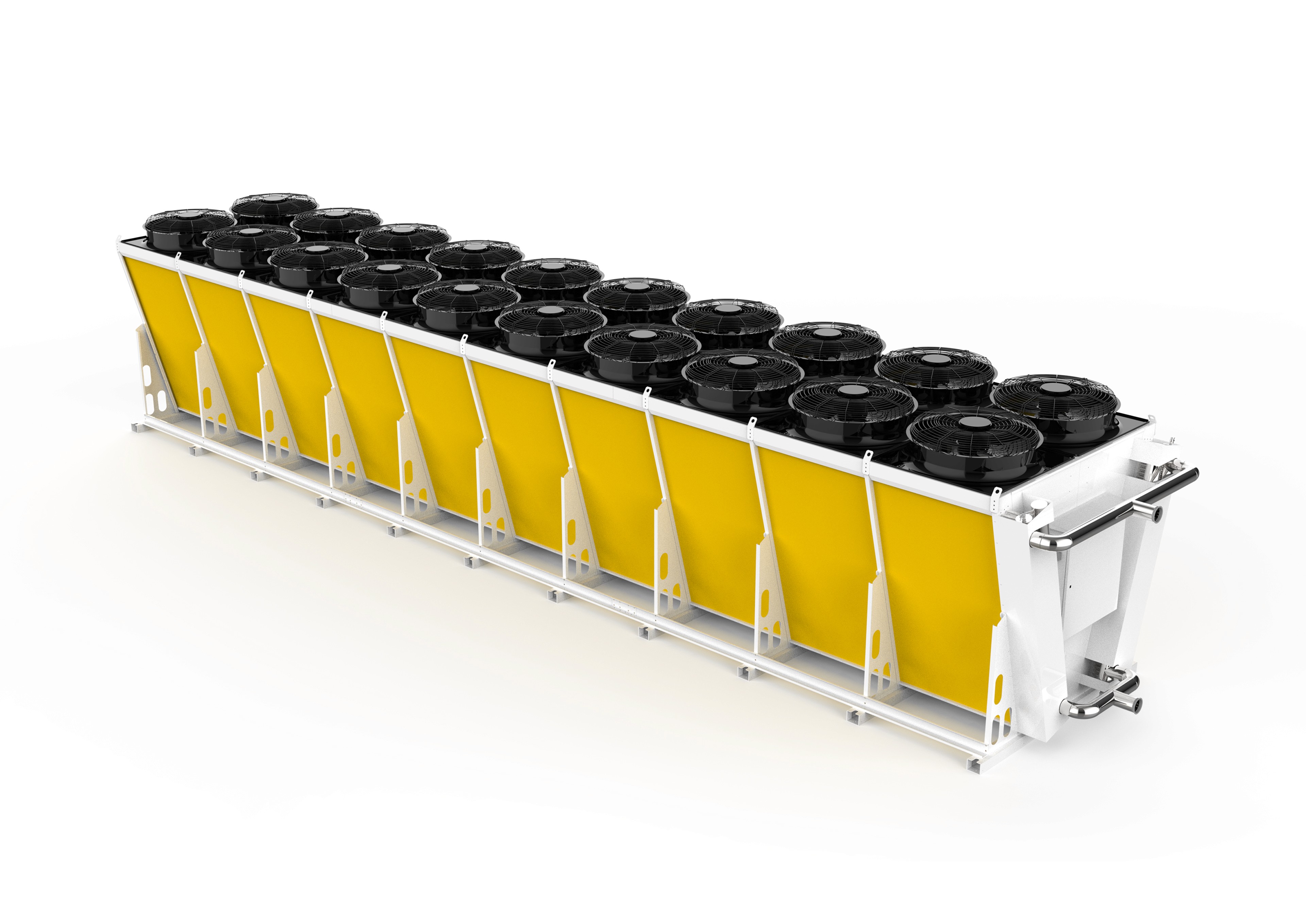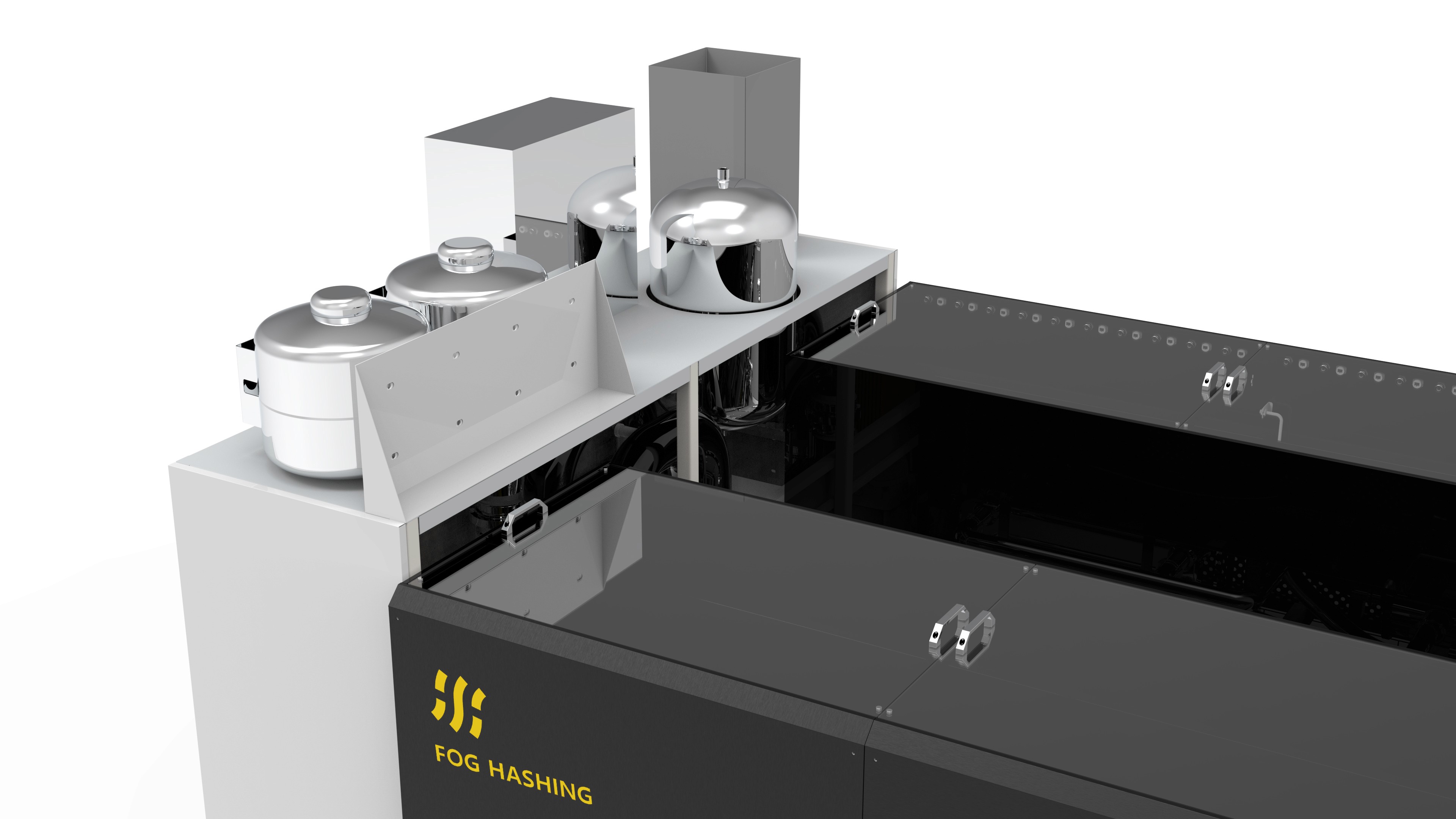High Performance with Quality
Efficient performance
High-quality components
Suitable from cold to heat
Fast Lead Time
Mature manufacturing
Core components in stock
Deployment within 3 days
Worry-Free Warranty
1-year complimentary FogCare service
Up to 10 years of FogCare+
3-level spare parts
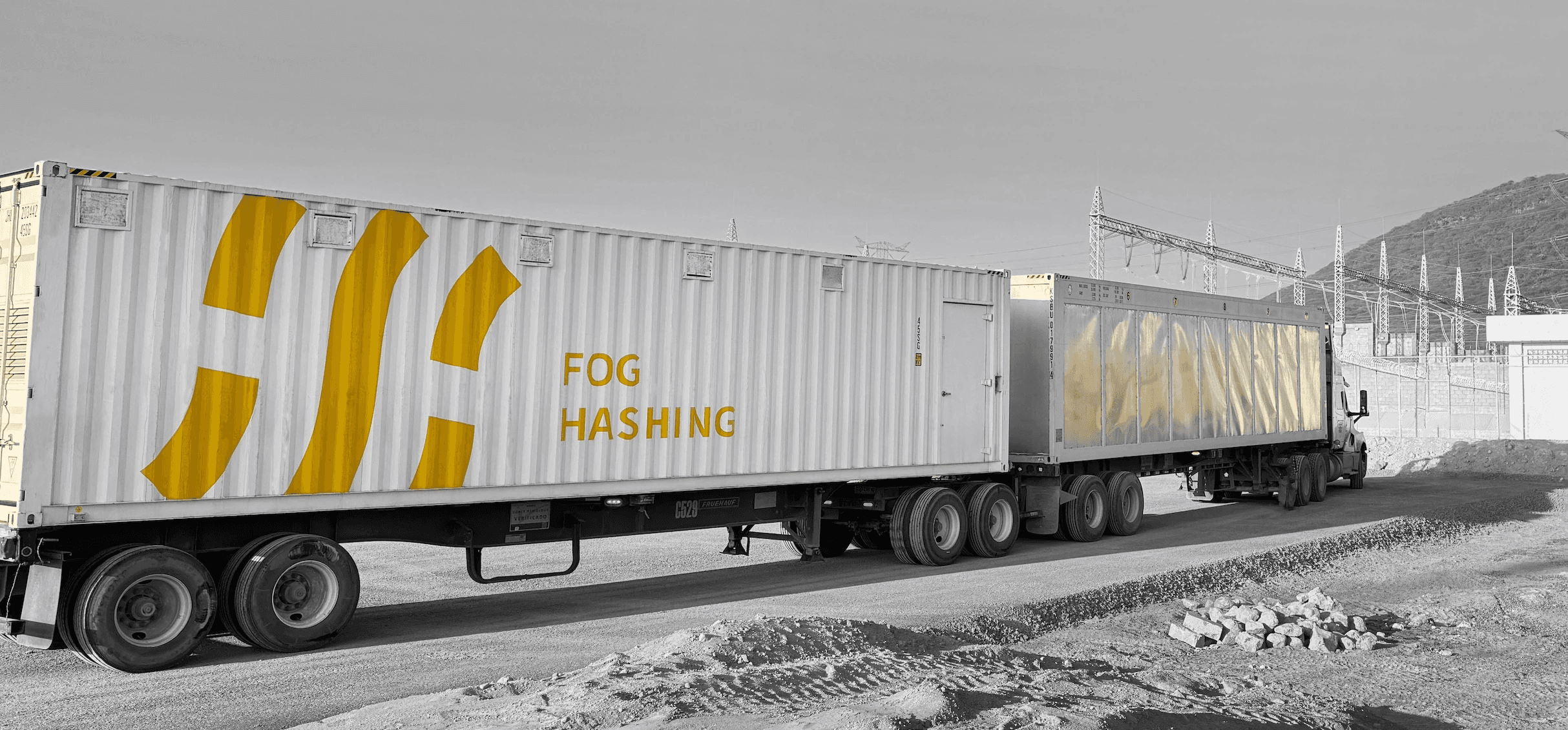
B100 TANK
Individual Power Control
Each Miner, pump, and dry cooler can be powered on/off locally and remotely.
Intelligent Operation
Precise temperature auto adjustment with a web portal for smooth operation.
BC40 ELITE
Best Practices for Immersion Cooling Containers
Quality Electrical System
UL489-compliant electrical panels, cables, and Noark circuit breakers ensure high reliability.
Smart Monitoring & Control
Remote Fog web portal with full API support for seamless integration.
B100 CLUSTER
Deploy Indoors? Easy !
For warehouse deployments, we designed the B100 Cluster as a pre-assembled super module, delivering a plug-and-play installation experience.
Skid-mounted Module
Tanks, power panels, CDU, and piping are skid-mounted as a super module.
Efficient Fluid Distribution
Dual-loop system with a simulated ring pipeline network design.
WHAT'S MORE
Ultra Performance with High Density

BC40 Pro
2MW Capacity
Supports up to 384 miners
16 tanks with 2 layers
Customization available
TESTIMONIALS
